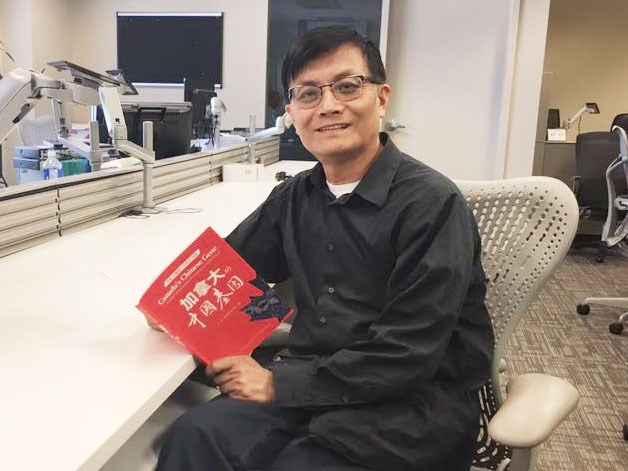A book about Chinese culture and history in Canada could help people better understand the issues in places such as Richmond, according to its author.
Canada’s Chinese Gene was released this summer to celebrate the history of Chinese Canadians and the contributions they have made to the founding of the country.
The main author, Guo Ding — who is also a TV producer for Omni Mandarin — said that by looking at the history, people can better understand and address the challenges faced nowadays, especially in a multicultural city such as Richmond.
The book reviewed the history of Chinese Canadians from 150 years ago, and demonstrated the contributions made in culture, economics and politics.
Ding argues that Chinese-Canadians should be recognized as nation builders, instead of immigrants “coming from the outside.”
“Chinese-Canadians were there over 150 years ago and Chinese ancestors played a key role in building the Canadian Pacific Railway, which was the foundation of the federation. They were not just cheap labourers, but nation builders,” said Ding.
Ding hopes that by understanding the historical contribution of Chinese to the nation’s establishment, Chinese-Canadians will have a deeper connection to Canada and better realize the responsibilities they have to it.
“When you see yourself as a guest, it’s easier to come here and take advantage of the place, and leave,” Ding said.
“But if you realize that your ancestors worked so hard to help build the country to make it how it is now, that they fought for the right you are now enjoying, you will feel attached to this place, treasure your rights, and want to make the country a better place.”
Ding suggested that Chinese Canadians need not build a 10,000-square-feet house on farmland, just because the law allows.
“Can you share some of the fortunes you made with the vulnerable people in the society? Yes you can, because (Canada) is your home, too,” he added.
Ding sums up the role of the Chinese in Canada by referencing the Chinese gene.
“I chose the term ‘Chinese gene’ because Canada was a multicultural country from the establishment of the country and there are many different genes in its blood, including the Chinese gene,” said Ding.
He believes the understanding that Chinese people have been a part of the Canadian family throughout history is very important for Chinese and non-Chinese cooperation today.
“When someone in your family does something wrong, you point it out and help him correct the mistakes, instead of asking him to leave the family,” Ding said.
“Similarly, when we have problems in society, like housing affordability issues, we should focus on the problem itself, like fixing the law, instead of seeing it as a racial issue and creating conflicts between ethnicities.”
Ding said he has a vision for Richmond to become a model of a multicultural city in the world, not for one or two ethnicities, but for all of them.
To achieve that, he thinks mutual understanding and consideration of each other is key, and history is one way to help foster this solidarity.
“Let’s take the Chinese language sign for an example. Some business owners do it because their language ability is not enough to serve non-Chinese customers,” said Ding.
“They don’t have bad intentions to exclude anybody. It’s just a practical way to do business.
“But for the business owners, it will be nice to add English to consider the feelings of the residents that don’t understand Chinese. It’s just a nice thing to do, isn’t it?”
Ding said he hopes, one day, that Richmond will see more multicultural symbols, other than restaurants, such as landmarks, museums and theatres to showcase the beauty of the city’s diversity.
The book will be available in English by the end of the year.



